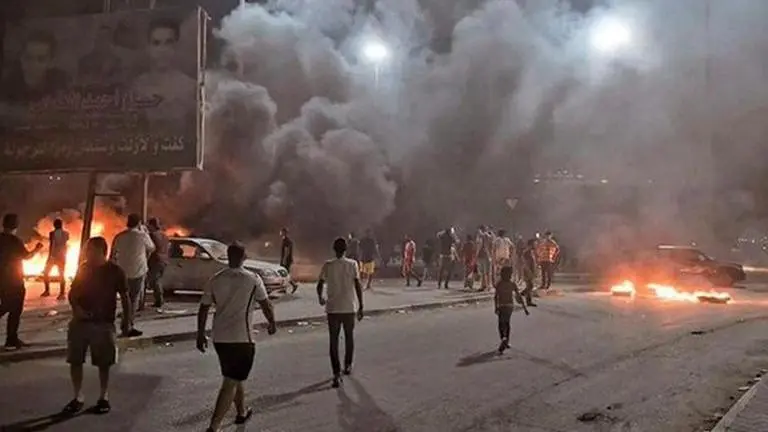Updated 2 July 2022 at 10:51 IST
Libya protesters set fire to Parliament building, call for end to politico-economic crisis
Angered by deteriorating polito-economic situation in Libya, protesters on Friday stormed the parliament building in the eastern city of Tobruk.
- World News
- 2 min read

Angered by the deteriorating polito-economic situation in Libya, protesters on Friday stormed the parliament building in the eastern city of Tobruk. Visuals from the scene that surfaced online showed some protesters setting fire to a part of the building and leaving behind thick columns of smoke from burning tires. According to a BBC report, their main demands remain the upliftment of living conditions and the resolution of political deadlock that has been in place for over a decade now.
In Libya's capital, Tripoli, where a rival administration holds sway, demonstrators called for fresh elections. Their call was supported by Abdul Hamid Dbeibah, the head of the interim unity government, who stated all the institutions in the nation needed to be changed.
To note, the unrest comes a day after United Nations-brokered talks in Geneva aimed at paving the way for a ballot ended with little progress. Libya has been witnessing chaos since its long-serving ruler Col Muammar Gaddafi was ousted.
Citizens angry and hungry for the economic crisis storm and burn the offices in the parliament of Tobruk in Libya. pic.twitter.com/pcs7a0HiHS
— RadioGenova (@RadioGenova) July 1, 2022
Live: Libyan protesters storm parliament building in Tobruk, set fires amid impasse between rival governments over electionshttps://t.co/KYGWvlt2In
— Ahmed Namatalla :: احمد نعمة الله (@ahmaui8) July 1, 2022
On Friday, the African Union state saw protesters raise their voices against issues such as continued power cuts and inflation. Some local media reports stated that angry residents entered and vandalised the legislative building. Notably, the building was empty as Friday is a weekend in Libya.
Advertisement
"We want the lights to work," they chanted. Apart from Tobruk, demonstrations were reported in other cities as well. Hundreds gathered in the capital Tripoli, where they called for fresh elections and lower prices of bread. The protesters have accused the legislature and lawmakers of pilfering their hard-earned money.
Libya’s political crisis began with Arab Spring
Libya’s political crisis began with the Arab Spring in late 2010, which eventually led to civil war and subsequent killing of Muammar Gaddafi. It is to mention that Arab Spring was a series of anti-government protests that spread across Arab region.Conditions in Libya improved after fresh elections were planned by the UN. However, it failed to materialise, pushing the country into further crisis. The main factions claiming leadership over the oil rich country are Government of National Accord and rival Libya’s National Liberation Army commanded by Khalifa Haftar. Now, with the political factions squabbling for control of power, Libya has been thrust back towards territorial division and a more intense civil war.
(Image: ThisFowora/Twitter)
Advertisement
Published By : Riya Baibhawi
Published On: 2 July 2022 at 10:51 IST
